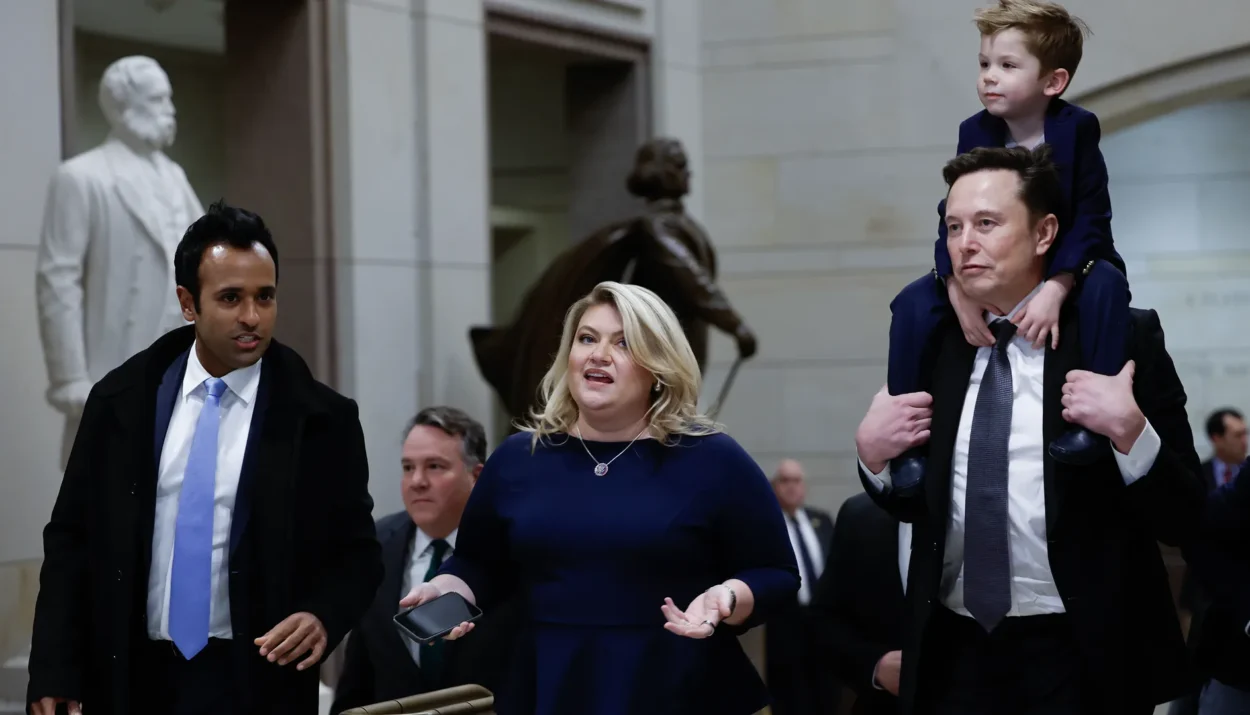In a move that blends immigration policy, social media regulation, and technology, Elon Musk has once again sparked controversy. The billionaire’s recent decisions at X (formerly Twitter) regarding user verification and his comments on H-1B visas have ignited debates among tech workers, political commentators, and immigration advocates.
The Spark: Laura Loomer and MAGA Verification
Musk recently announced the introduction of a new “MAGA Verification” badge on X, which he claims will allow users who identify with Trump-era policies to enhance their presence on the platform (Axios). This development followed his collaboration with far-right commentator Laura Loomer, who has been a vocal critic of Big Tech and immigration policies, including the use of H-1B visas.
Critics argue that this feature politicizes the verification process, allowing X to cater to a niche audience while alienating others. “MAGA Verification” has also raised concerns about misinformation, as similar labels could amplify divisive narratives online.
H-1B Visas Under Fire
In a broader context, Musk’s support for restrictive immigration policies has brought renewed attention to H-1B visas. These visas, which allow skilled foreign workers to fill critical roles in the U.S., have long been a point of contention in immigration debates. According to The Washington Post, Musk has publicly aligned with policies promoted by former President Donald Trump, advocating for reducing reliance on foreign workers in tech jobs.
During a recent X Spaces session, Musk echoed sentiments often expressed by MAGA proponents, questioning whether H-1B visas are necessary in an era where American talent could be prioritized. This stance has been criticized by tech leaders who argue that the U.S. relies on foreign talent to maintain its competitive edge.
Backlash from Tech and Immigration Advocates
Immigration advocates have called Musk’s comments and X’s recent policies a distraction from the need to reform the H-1B program to prevent abuse while maintaining its essential role in the tech industry. The visa program has supported thousands of professionals in filling high-demand roles, yet it is often misunderstood and politicized.
Moreover, the introduction of “MAGA Verification” has been seen by some as an extension of Musk’s polarizing political views, which have increasingly shaped the direction of X. Critics, including members of the tech community, have voiced concerns about how these changes could exacerbate political divides and harm the platform’s reputation as a global communication tool.
Supporters Rally Behind Musk
Despite the backlash, Musk has found supporters among conservative circles and MAGA advocates, who see the “MAGA Verification” badge as a step toward combating perceived censorship on social media (Axios). They argue that Musk’s stance on immigration aligns with their vision of prioritizing American jobs and workers.
The Bigger Picture
Musk’s actions reflect a growing trend of tech leaders wading into political debates, particularly those tied to immigration and workforce policies. As the tech industry grapples with regulatory scrutiny, labor shortages, and global competition, the intersection of politics and technology is becoming increasingly pronounced.
Conclusion
Elon Musk’s latest moves at X, combined with his comments on H-1B visas, highlight the complex interplay between technology, immigration, and politics. As the debate unfolds, it raises pressing questions about the future of immigration policy, free speech, and the role of social media in shaping public discourse. Whether Musk’s decisions will strengthen or polarize his platform remains to be seen, but they have undoubtedly thrust X into the center of another high-profile controversy.










